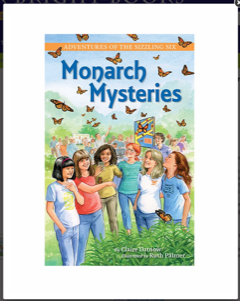YA Eco Mysteries, Memoirs, Novels & Travel
If Whales Could Talk
If Whales Could Talk
Human: Oh, Whale, we love to watch you
Spouting and spy hopping!
Gray Whale: Watching without knowing is not enough.
Human: Oh, Whale tell us what to know.
Gray Whale: Monsters bash us, floating trash chokes us, melting ice kills our food,
slithering snakes snare us.
Human: Oh, whale can you ever forgive us for what we have done?
Whale: Only if you stop the slaughter.
Excerpt from The Gray Whale’s Lament: An Eco Adventure

We are ancient. We are weathered. We appeared 50 million years ago, long before the first humans. We live in the world’s oceans from the Arctic and Antarctic to the tropical seas around the equator. We are many times larger than any human. They call us mammals, like them. To them we are also monsters of the deep. A few of us have lived for 200 hundred years. Our bodies are scared with messages for humans to decipher. We conserve life on this planet by capturing carbon from the atmosphere. We are beacons of hope for the future.
But something has gone wrong. Dead whales have begun washing ashore. I, Natsilane, one of the dead, will speak on their behalf. We mourn the deaths of each member of our family struck by ships, tangled in fishing nets, suffocated by oil and chemical spills, choked by plastic pollution, and starved because of climate change. Some humans enjoy whale watching. They take photos of whales, ignoring our scars, our thinning sides, the spine bones sticking out on our backs. When humans do pause to look at us—really look at us—it is with wonder or pity.
There are so many novels about whales for young readers and for the young at heart. The stories I enjoy most the ones that entertain, intrigue, and educate me. To quote the author of Moby Dick. “Ignorance is the parent of fear.”—Herman Melvin
My short list of books about whales I have read:
Song for a Whale by Lynne Kelly
The Whale Caller by Makes Mda (adult)
People of the Whale: A Novel by Linda Hogan (adult)
The Whale Rider by Witi Ihimaera (adult)
Ice Whale by Jean Craighead George
A Whale of the Wild by Rosanne Parry
My short list of Non fiction:
Fathoms: The World in the Whale by Rebecca Giggss
Spying on Whales by Nick Pyenson
Books I want to read:
Whalefall a novel by Daniel Kraus
No More Fairy Tales: Stories to Save our Planet by Kim Stanley Robinson, Paolo Bacigalupi et. Al.
The Last Whaling Station
The Last Whaling Station Point San Pueblo California
A Visit to the Setting of the Story
Reality met the setting I imagined on my trip to the Last Whaling in the US, San Pueblo Point, East Bay California. This is an excerpt from The Gray Whale's Lament after my trip.
Chapter 8. The Last Whaling Station
They drove on the freeway through heavy traffic and then across the long, roller coaster-like San Rafael Bridge. Nearing their destination at Point Molate Naval Base, they passed an old air raid shelter with castle-like brown brick walls covered in vines.
Searching the internet Sarah exclaimed, “Mom, this is so interesting . . . did you know that Native Americans fished right here for centuries, and that in the late 1800s it was a Chinese shrimp camp?”
“I knew about the shrimp camp and of course there were native Americans living here long before us. Their ancestors still live around this place. If we dig in the earth we might find shards of their pottery, the shells of the mussels, and the bones fish they ate.”
“Ooh, that gives me goose bumps.” Sarah shivered.
At Point San Pablo, the road had been blocked by security guards, so they turned right at a fork, winding around a hill. Noticing that her mother was clutching the steering wheel so tightly her knuckles were white, Sarah asked, “Mom, what’s wrong?”
“This is where your Grandmother Rose took the picture of the whaling station,” she replied.
“Stop, Mom! I want to take a picture at this spot,” Sarah said.
Bumping off the road, they parked on a grassy shoulder. Then the two hiked to the top of the hill.
“Is that where the whales were killed?” Sarah asked, pointing across the bay.
“Yes.” Her mother sighed. Standing shoulder to shoulder they listened to the wind rustling through the golden, dry grass at their feet. The wind picked up, flattening the grass, and howling across the waves.
Sarah shivered. “It sounds like the ghosts of long ago still haunt this place.”
Her mother squeezed her hand. “It’s okay to remember the past,” she said, dabbing away tears. “Even upsetting memories can motivate you to do something worthwhile.”
Sarah began snapping pictures. “Still, it’s peaceful here. It’s hard to believe this bay was home to the last active whaling station where whales were slaughtered in the US.”
***
Ramp for Dragging whales into the Whaling Station
Finally, they pulled into the parking lot, hidden around a bend at the end of the road, at Point San Pablo Yacht Harbor.
With the Chummy at her heels and binoculars in hand, Sarah tumbled out of the car. Pulling out her mobile phone, she snapped photos of houseboats, and floating homes that lined the bay.
Houseboats San Pueblo Point, East Bay California
She couldn’t resist taking a picture of the funky, oversized sculpture of an alligator with jaws wide open.
Oversized Sculpture of an Alligator, San Pueblo Hatch Club
Even the historic old shacks and rusting machinery made interesting pictures. As they walked by, the harbor master waved and called out, “Don’t forget to visit the farm with goats and order something to eat at the restaurant.”
They came to the pebbly beach where a sign that read: OK for launching kayaks, canoes, etc. Chummy trotted along the beach stopping to sniff at invisible scents. Her mother rubbed her forehead, “It’s changed since I was here years ago.”
“I can’t see the old whaling station,” Sarah said, looking through her binoculars.
“We need to drive to the North side of the point where we can see across the bay to the remains of the whaling station.”
They got back in the car and within minutes they arrived at the point. Chummy leapt out of the car and began to bark, “Be quiet!” Sarah command her dog to stop him from barking at the elephant seals rumbling contentedly while sunning themselves on the rocks. She could make see the blackened wooden posts, which had supported the pier and the gangplank up to the factory. Her mother had been right, there was nothing to tell of the horror that had happened here. No witness to how ruthlessly the whales had been slaughtered.
Chocking back curse words she hissed, “Nasty, stupid—.”
Just then Chummy began yipping. She turned and saw her dog digging furiously at something half-buried in the sand.
“Chummy, come here,” Sarah called. The dog raced toward her, then turned back to continue digging, sending sand flying.
“What have you got there, boy?” Sarah strode over to Chummy. It appeared to be blue plastic bottle cap sticking out of the sand. Getting down on her knees, she rocked the bottle loose. She brushed off the sand she held it up to the light. It was an ordinary plastic water bottle with a roll of paper inside. There was also a plastic bag with something tiny curled inside. Peering more closely she could make out what appeared to be tiny black eye in a white face and a curled body. The image of the fetus in her dream flared in her mind. She dropped the bottle as if it were a scorpion readying to sting her.
“Calm down. It’s just a bottle with a plastic bag and some junk inside it. Nothing to be afraid of.”
“What is it?” Sarah asked, her breath catching in her throat.
“I can’t tell for sure,” her mother said. “Maybe it’s a message or treasure from a castaway pirate stranded on a deserted tropical island,” her mother joked.
“Right, and we should row over to save him right now,” Sarah said, brushing off the sand clinging to Chummy.



